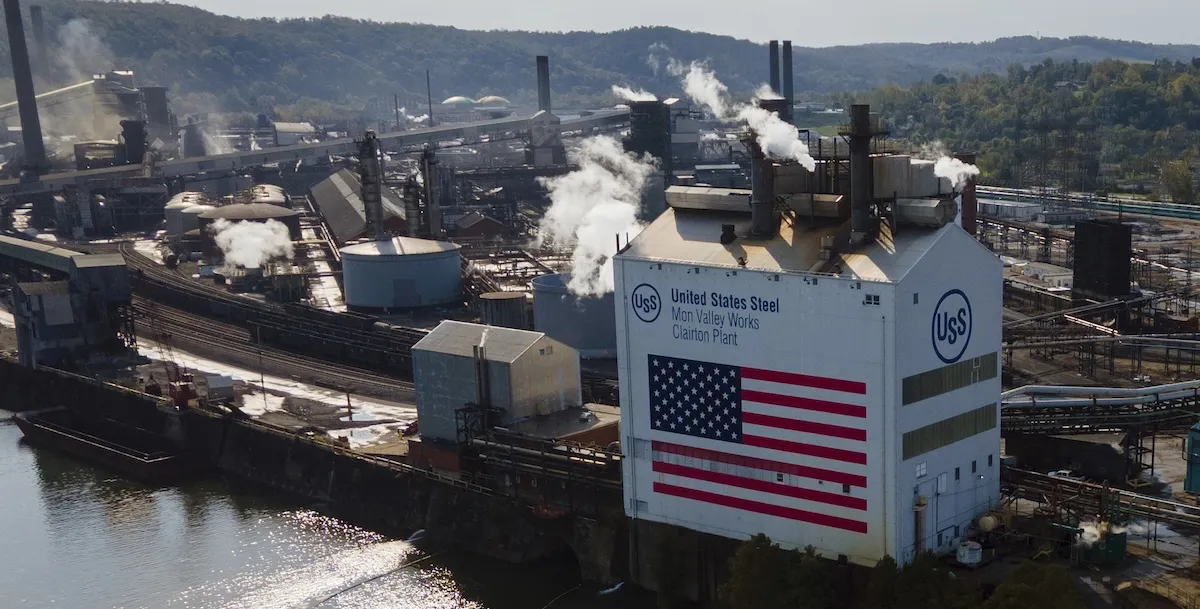US Steel’s Shocking Turnaround: What You Need to Know Now!
In a dramatic twist that has sent shockwaves through the American industrial landscape, U.S. Steel finds itself at the center of a high-stakes national debate that could redefine the future of domestic manufacturing. The proposed $14.1 billion acquisition by Nippon Steel has transformed from a routine business transaction into a pivotal moment of economic and political significance.
The Unexpected Political Intervention
President Joe Biden has taken an unprecedented stance, directly challenging the proposed sale and emphasizing the critical importance of maintaining U.S. Steel as an American-owned enterprise. “It is vital that we maintain strong American steel companies powered by American steel workers,” Biden declared, signaling a robust commitment to domestic industrial sovereignty.
The administration’s intervention goes far beyond typical business negotiations. Key points of concern include:
- National security implications
- Potential impact on American jobs
- Long-term economic strategic considerations
The Financial Landscape
U.S. Steel has been experiencing significant financial challenges, with recent stock performance indicating substantial volatility. The company’s fourth-quarter EBITDA expectations hover around a modest $150 million, highlighting the complex economic pressures driving the potential acquisition.
Nippon Steel’s Position
Despite the political pushback, Nippon Steel has maintained a conciliatory approach. The Japanese corporation has consistently emphasized its commitment to:
- Supporting U.S. Steel’s existing workforce
- Maintaining operations in the American market
- Investing in domestic manufacturing capabilities
Regulatory Scrutiny
The Committee on Foreign Investment in the United States (CFIUS) is currently conducting an extensive review of the proposed transaction. This process has drawn bipartisan attention and criticism, reflecting broader concerns about foreign investment in critical industrial sectors.
Unexpected Allies and Opponents
Interestingly, the U.S. Chamber of Commerce has cautioned against overly politicizing the review process. They argue that the deal should proceed if no genuine national security concerns are identified.
The Broader Context
This situation represents more than just a corporate acquisition. It symbolizes:
- The evolving dynamics of global industrial competition
- Increasing governmental intervention in strategic economic decisions
- The ongoing debate about maintaining domestic manufacturing capabilities
International Considerations
Complicating matters are concerns about Nippon Steel’s assets in China, which have raised additional scrutiny from national security perspectives.
A Century of American Industrial Heritage
U.S. Steel is not just another company—it’s an industrial icon that has been integral to American manufacturing for over 100 years. The potential change in ownership represents a symbolic moment in the nation’s economic narrative.
The Path Forward
As the drama unfolds, several potential scenarios emerge:
- Complete rejection of the Nippon Steel deal
- Negotiated modifications to address governmental concerns
- Potential alternative domestic acquisition
Conclusion
The U.S. Steel acquisition saga represents a critical junction in American industrial policy. It underscores the delicate balance between global economic integration and maintaining strategic national interests.
Stay tuned as this compelling story continues to develop.
Disclaimer: This article represents current reporting and analysis based on available information as of March 2024.






Leave a Comment